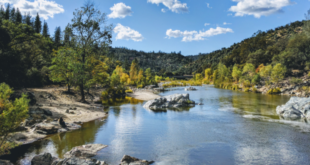Fifteen cities and agencies, including the Inland Empire Utilities Agency (IEUA), within Southern California’s Chino Basin approved a collaborative Memorandum of Understanding (MOU) this week in support of the Chino Basin Program (CBP). The CBP will provide three primary improvements to water and water storage in the region.
The CBP plans includes the construction of an advanced water treatment facility and distribution system to treat and store up to 15,000 acre-feet per year of recycled water in the Chino Basin. When completed the facility and system will that reduces the impact of salinity in the groundwater. In turn this will improve the region’s water quality of 50,000 acre-feet per year. The CBP will also address historical land subsidence within the Chino Basin.
“Our goal has always been to work together to build partnerships and infrastructure that support our communities today, tomorrow and into the future,” said IEUA Board President Paul Hofer. “The Chino Basin Program embodies these principles and encourages continued coordination between each of our cities and water agencies.”
The Chino Basin Plan was conditionally awarded $206.9 million from Proposition 1, a state water bond approved by voters in 2014 that provides funding for new and innovative water storage projects. However, the CBP’s technical feasibility studies, institutional agreements and environmental permitting must be completed by 2020 in order to secure the final funding award. The 15-member CBP collaborative has indicated that stakeholder engagement and support for the CBP will be instrumental in the program’s success.
“The hard work of the local cities and water agencies, working together over the past 20 years to build on the success of past programs, laid the foundation for the Chino Basin Program,” said IEUA Board member and CBP Ad Hoc Committee Chair Steve Elie. “This is a collaborative effort to ensure that our region is able to meet water supply, water quality, and storage needs now and in the future.”
 California Water News Daily Your Source For Water News in California
California Water News Daily Your Source For Water News in California


